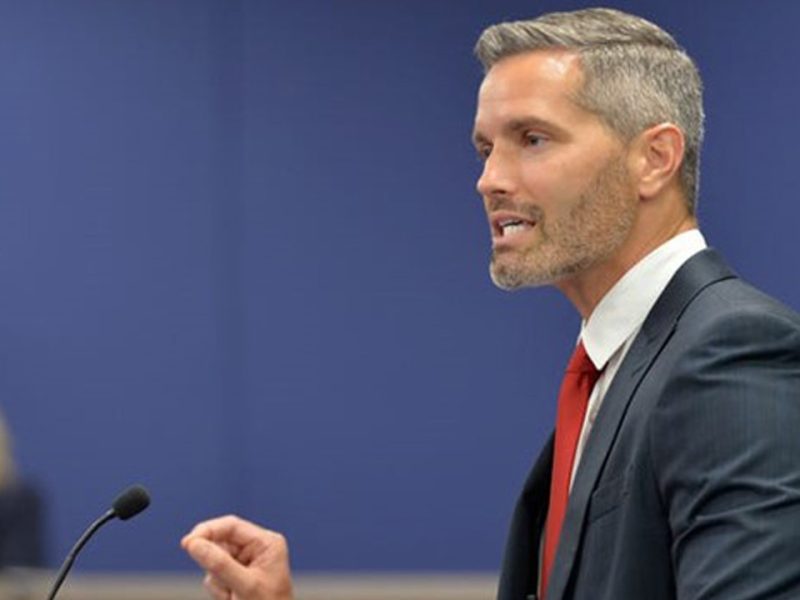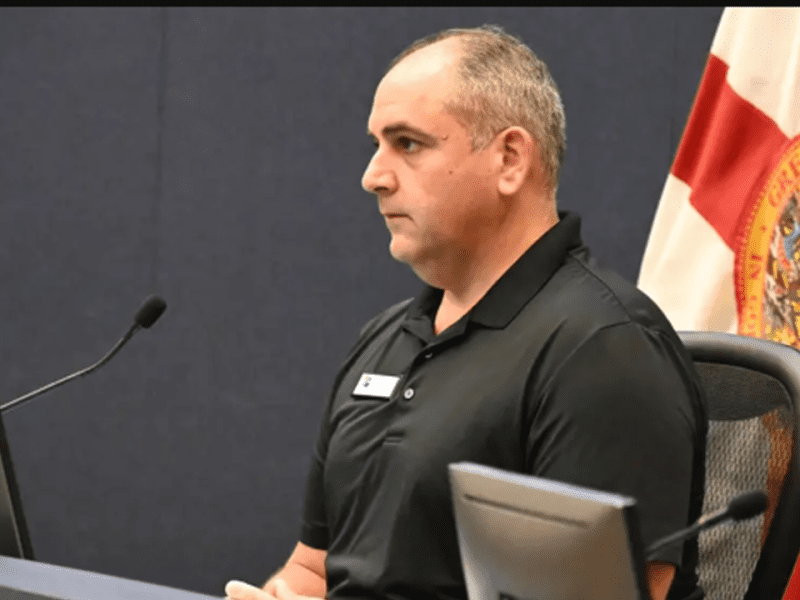Florida pushes to ban transgender students from female sports teams; critics call it ‘bigoted’
Orlando Sentinel | by Leslie Postal | April 8, 2021
A Republican push underway in Florida to ban transgender athletes from joining girls’ and women’s school sports teams follows a national playbook, with the bill modeled after a law first passed by Idaho last year and since then introduced by GOP lawmakers in more than 25 other states.
Supporters argue what they’ve named the “fairness in women’s sports act” is needed to protect female athletes who could be denied athletic opportunities if they had to compete against transgender students who were born male.
It is a move “to ensure women and girls do not become sideline spectators in their own sports,” said Rep. Kaylee Tuck, R-Lake Placid, sponsor of the House bill to ban transgender females from girls’ and women’s teams.
Critics, however, say the proposal is part of “bigoted movement” that unfairly and cruelly targets transgender students and proposes solutions where there aren’t problems. Both the Florida High School Athletic Association and the NCAA, they note, have successfully adopted policies that provide ways for transgender athletes to play on high school and college teams.
“Those guidelines are in place … and those guidelines are working,” said Nadine Smith, executive director of Equality Florida, a statewide LGBTQ civil rights group, speaking last week at a press conference in Clearwater. The bills are being put forward, Smith added, “for one reason and one reason only — somebody has convinced legislators in 25 states that by pushing this bill, they are throwing red meat to their base.”
Democrats opposed to the bill said only 11 transgender athletes have sought eligibility under current FHSAA rules and note there have been no legal disputes because of their participation. The American Civil Liberties Union, which is fighting the transgender bans nationwide, said there is “no data” to back up the concerns the bills want to address because only a small fraction — about 0.6% — of the U.S. population identifies as transgender.
Not all transgender students want to play sports, but those who do should be able to, the group adds.
The House bill (HB 1475) is teed up for a vote on the floor, after two committee stops that prompted heated debate and highlighted sharp culture war fault lines. It passed both committees with all Republicans voting in favor and all Democrats voting against except for Rep. James Bush III, D-Miami.
Florida is now one of 16 states whose high school athletic associations provide “friendly” guidance that allow transgender students to join sports teams based on their current gender identity, according to the website Transathlete, which tracks such policies. The FHSAA, which did not respond to a request for comment, requires documentation of “consistent identity and expression” and medical information as part of its process to clear transgender students to play on school sports teams.
The NCAA, which governs competitive collegiate sports, allows transgender women to compete on women’s teams after a year of hormone therapy. The NCAA said in a statement that it is monitoring the state bills on transgender athletes and that its policy is “designed to facilitate and support inclusion.”
The House bill would alter the current athletic landscape by banning transgender athletes from joining any girls’ or women’s school sports team, unless they are female as defined by their reproductive anatomy and genetics. A Senate version (SB 2012) that is still in committee would allow transgender athletes to join girls’ or women’s teams if their testosterone levels are below a certain limit for a year before they begin competition.
Florida’s House bill is similar to the legislation passed in Idaho, which was quickly challenged in federal court and is now on hold after a judge ruled the state cannot ban transgender students from sports teams. Similar bans have been signed into law by Republican governors in Arkansas, Mississippi and Tennessee and lawmakers are debating them in dozens of other states.
South Dakota’s legislature passed one, too, but its Republican governor vetoed it last week, saying she was worried the NCAA would respond by canceling tournaments in her state.
Some questioned whether Florida would also face the loss of NCAA events, if the bill becomes law. But Rep. Chris Latvala, R-Clearwater, the chair of the education committee that passed the bill Tuesday, said the NCAA was “only interested in money” and shouldn’t have a say in state policy. “They, frankly, can shut up about what we do here,” he said.
The bills here, and across the country, have been pitched as an effort to protect women and girls who play sports.
“It’s pro-women and pro-girls,” Tuck said, as their ability to play on school sports teams could be limited if “biological males” with physical advantages in strength and speed are allowed to compete on their squads.
“If we allow biological males to compete in athletic events against biological females we may never see another Allyson Felix again,” she said.
Felix is the U.S. track star who has won six Olympic gold medals, but Tuck said some elite male high school runners could beat her times.
Like counterparts in other states, Tuck also cited a pending lawsuit in Connecticut brought last year by the families of three female high school runners. Their lawsuit argues that two transgender athletes unfairly dominated girls’ track events, winning a combined 15 championships since 2017.
The families who sued Connecticut are represented by the Alliance Defending Freedom, a legal group started by Christian leaders with a mission to defend “religious liberty.” The alliance, criticized for anti-LGBTQ positions, also guided the Idaho lawmaker who proposed her state’s transgender ban in early 2020.
Critics questioned why a lawsuit in Connecticut has prompted proposed legislation here.
“The FHSAA already addressed what needs to be addressed. I don’t see the purpose of this bill,” said Rep. Christine Hunschofsky, D-Parkland.
“It’s an attempt by politicians to vilify transgender kids,” using “the guise of fairness and equality,” argued Michael Womack, a communications manager with Equality Florida, at its press conference. “It’s a bigoted movement desperately trying to find its footing.”
Doriane Campbell, a law professor at Duke University, opposes “categorical bans” like those proposed by the House but is part of a group seeking what it calls a “middle way” in the debate.
“Our goal was to sort of break through the either/or rhetoric,” said Campbell, a runner who was the 800-meter U.S. national collegiate indoor champion in 1982.
The Women’s Sports Policy Working Group, whose leaders include former tennis champion Marina Navratilova and Olympic gold medalist swimmer Donna De Varona, wants to protect female-only sports but also work to include transgender athletes.
The group advocates for a policy that allows transgender females to compete without conditions, if they not experienced male puberty or have taken hormones that have mitigated that “male advantage.”
Transgender athletes who have not mitigated that advantage should still be allowed on girls’ and women’s and be able to practice, if there are no safety concerns, but should not be allowed to take part in “head-to-head competition,” the group says.
Martin McLellend, the stepfather of a transgender girl, spoke at the advocacy group’s press conference last week. He said his child was barred from a gym in Tampa Bay where she wanted to take gymnastics classes.
“Thankfully, she has an awesome school. She has awesome teachers,” McLelland said.
But the proposed House bill would allow schools to do what the private gym already did. “Not only is this stuff hurtful, it’s harmful,” he said. “Drop the bill … protect our youth and let them play.”






